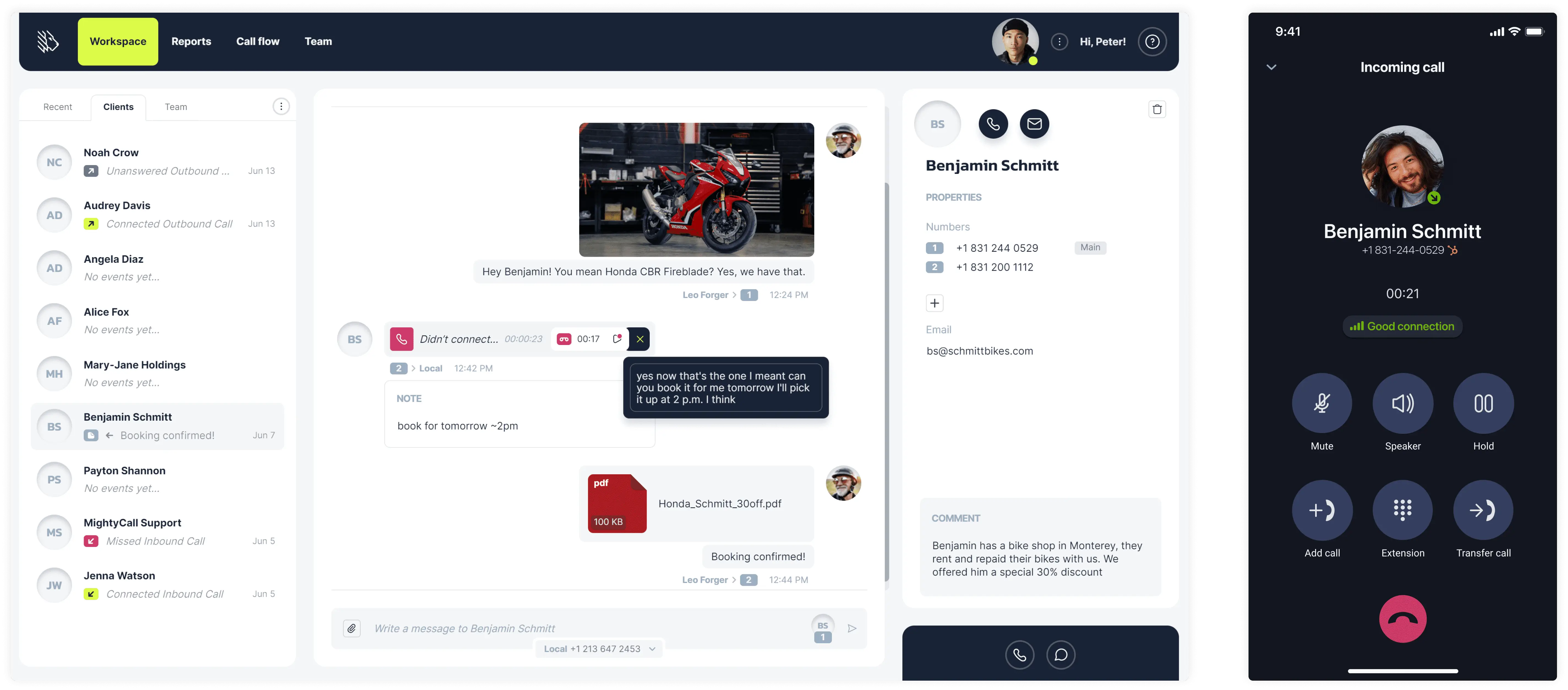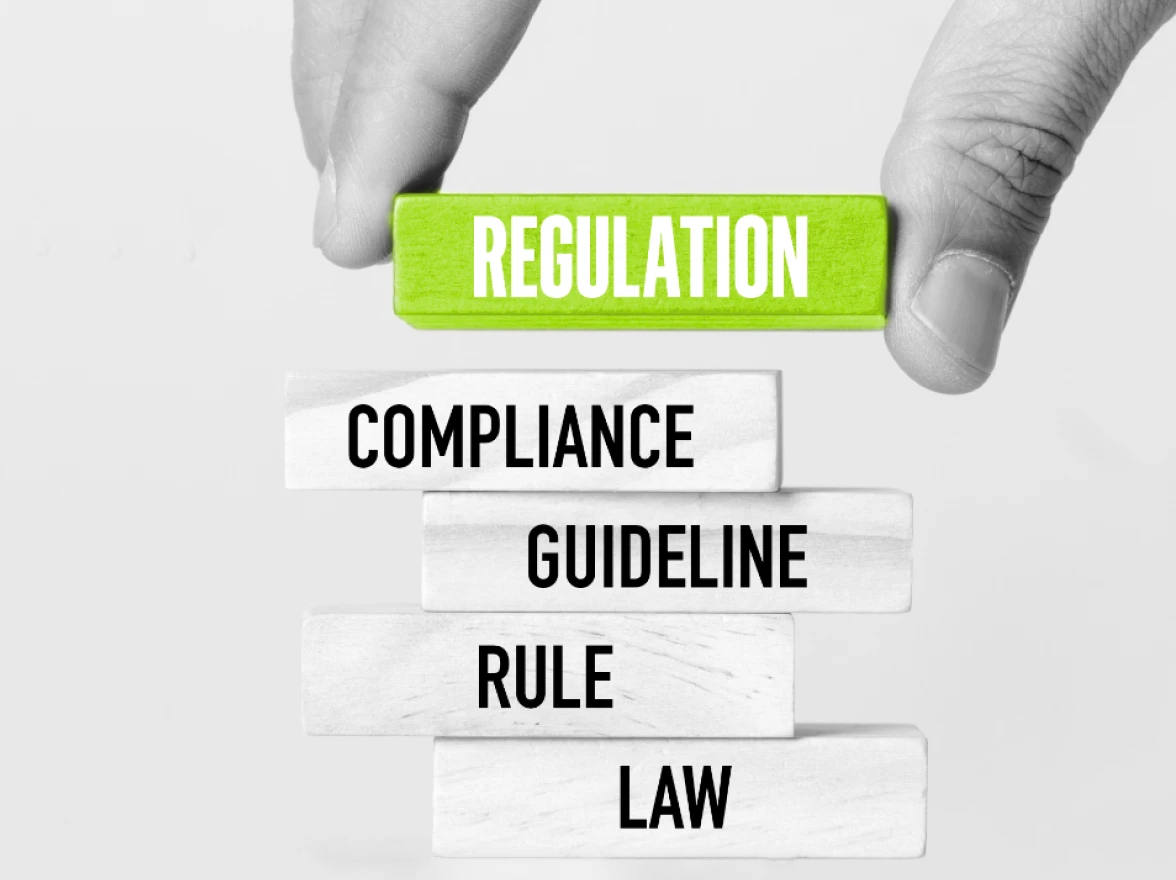Did you ever sign up for a service only to realize it’s a perfect mismatch? How about mobile apps and other digital products for customer service that you never really “grew into” but didn’t bother to unsubscribe from? You know, the ones still hijacking your inbox with promo ads and newsletters?
However, these apps keep getting better, as does customer support.
According to a 2022 mobile application survey by Top Design Firms, mobile apps are expected to earn a massive $935 billion in revenue by 2023, with 48% of small businesses currently owning a mobile app, and 27% planning to build one to support future business growth.
Below, we asked small businesses nationwide to share their favorite mobile customer service apps.
What is customer service software?
Customer service software is a digital solution that helps businesses manage, organize, and streamline their customer support processes. It can be a fully developed customer support call center, or have some or all of the following features: IVR, live chat, help desk tools, knowledge bases, and social media integrations. By providing organized channels for communication, customer service software enables companies to handle customer inquiries and issues more effectively, ultimately improving customer satisfaction and fostering loyalty.
Mobile apps for phone communications
In contrast to quick questions that can be answered via chat or email, according to a study fielded by American Express, 45% of U.S. customers prefer settling more complicated issues via phone.
When choosing a voice communication provider, go for a service that’s mobile, cost-effective, and integrates well with other tools. Today, Cloud Telephony (or VoIP) offers some of the most reliable features for a business to stay connected both in and beyond the office.
MightyCall

MightyCall is a cloud-based call center software provider, specializing in delivering affordable and intuitive solutions for small and mid-sized businesses. Our mission is to democratize advanced call center technology, ensuring that even the smallest teams can benefit from powerful communication tools without needing extensive IT support or large budgets.
Privately owned and operated by a small team of telecommunication experts, MightyCall focuses on providing an easy-to-use, scalable product that meets the unique needs of small businesses, enabling them to compete with larger enterprises.
Our success is rooted in a customer-centric approach. We conduct extensive customer development interviews to tailor our product to real-world needs, ensuring it remains relevant and effective. Exceptional customer support is a priority for us, offering real-time assistance and free personalized onboarding to all clients, no matter the size of their company.
MightyCall has mobile customer service features to help entrepreneurs keep their precious work/life balance. Sandra Balzola of Red Sand Studios, LLC, says of MightyCall:
“I love that I can set up my business hours and receive calls only during those hours. I like that I’ve been able to keep business and personal [communication] separate.”
Pricing: The MightyCall mobile app with mobile CRM is free for MightyCall users ( iOS/Android). MightyCall plans start at $20 per month for unlimited users. You can also get a free trial on all plans.
schedule your personalized demo with our amazing team

Mobile apps for efficiency
According to a study by Software Advice, 81% of business owners access their customer service software from multiple devices. This echoes mobile application productivity research showing that 65% of sales representatives who adopted mobile customer service apps successfully achieved their sales quotas last year. In contrast, only 22% of reps using non-mobile CRM apps nailed the same targets.
CRM tools with wide mobile functionality are sure winners for all kinds of business goals. They will support your team’s work in any environment and circumstances.
Stripe
Stripe is a solution for managing online transactions and online payments. Second only to PayPal in popularity, the newer service challenges PayPal with a focus on data portability, transparent pricing, and a wider-than-ever range of accepted payment types. Stripe can be used both with online customers and for out-of-office employee payouts.
“We use Stripe to distribute payments to our tow truck drivers without them having to come into the office,” Sean Pour, co-founder of SellMax says. “[It’s] very easy to send payments, and easy to set up.” Though Pour adds that “transactions can get expensive with the 2.9% process fee,” Stripe fees are in fact the same as PayPal’s and in some cases, lower.
Pricing: Stripe Dashboard for iOS/Android is free for Stripe users. Stripe pricing is commission-based, per-transaction.
DropBox
Everyone knows that DropBox is great for storing and sharing documents in the Cloud. But did you know it’s got some time-saving mobile app features bundled?
“We use the Dropbox mobile app to keep and scan relevant documents that we may need later,” Pour says. “This allows everyone at the company to easily search through it and find the documents they need.”
The ability to scan documents with a phone is a very powerful feature for small business. Pour notes, “[DropBox is] easy to set up on all computers, [and we] can scan documents with the app instead of using a printer.” As with all Cloud storage, Pour recommends to “focus on organizing the stored data from the start” to avoid storage “become cluttered”.
Pricing: DropBox and the DropBox app for iOS/Android are free.
Gist
If you’re using lots of channels to connect to your team, customers, and manage your business, Gist is a solution not to be missed. Gist offers over 25 integrations with apps you’re using every day. It offers similar functionality to Intercom, but with attractive pricing for small business.
“As social networks become larger and businesses need to operate in more places,” says Bret Carmichael of LEAP WORKS, “it will take more work to manage communication channels independently… We use Gist to centralize all our customer communications…Onsite chats go through Gist, Facebook Messenger chats are routed to Gist, as are Twitter direct messages. [It] saves us from [the task of] monitoring independent channels.”
Pricing: The Gist mobile app for iOS/Android is free for Gist users. Gist has a free starter plan; business pricing starts at $29/user per month with a free 14-day trial.
Mobile apps for social outreach
Bigger doesn’t always mean better. To run and manage successful marketing campaigns from the office and outside of it, you don’t have to opt for expensive services. Mobile social platforms can provide deep insights and analytics into your audience, especially with the current development of analytics features.
The ancient wisdom of “quality over quantity” works equally well with modern social media. To get to the heart of your market, understand the outlets that work for your industry and take steps to serve that unique audience.
Google My Business
For brick-and-mortar stores, Google My Business is a must. Not only does it display the main information about your business in a single window on Google search, but it allows customers to call and message you instantly.
“You can communicate with your company using Google’s My Business app. This is awesome for small businesses,” Carmichael says. Though the app is “still relatively new” and you “need to post regularly”, Carmichael adds, “that’s just fine, because the results are featured prominently in [Google] search.” And as all business owners know, there’s no such thing as ‘too much’ Google presence.
Pricing: Google My Business mobile app for iOS/Android is free
Twitter DM
Twitter is no secret to marketers, especially online businesses and stores that want to reach out to bigger audiences online. However, the platform does have its intricacies.
“Companies who can answer customer outreach on the channels customers prefer are best positioned to succeed,” says Carmichael. “If you count your customers among your Twitter followers … there’s no sense sending them somewhere else.”
Carmichael also advises business owners to be extra cautious when handling unfair complaints: “More than any other social network, mistakes made on Twitter can go viral with devastating results…Your comments can be misinterpreted by an audience. Always take the high road…If you don’t have the temperament to respectfully manage sometimes unfair sentiment, do not use Twitter.”
Pricing: The Twitter mobile app for iOS/Android is free
If you’re in the B2B industry and haven’t been active on LinkedIn, consider these facts: 51% of companies acquired a B2B customer through LinkedIn and 93% of B2B marketers consider LinkedIn the most effective platform for lead generation. Surprising? Not to B2B marketers!
Shakun Bansal, Head of Marketing at Mercer | Mettl says:
“For us, surveys through email and posts on LinkedIn are the best sources to get customer feedback…The more insightful and in-depth information that these platforms are able to give with accelerated AI and ML use, the more exact targeting could become which will drastically increase the marketing RoI.”
Don’t count yourself among the crowd of B2B marketers on LinkedIn? Why not join right now!
Pricing: The LinkedIn mobile app for iOS/Android is free
Mobile apps for marketing, sales, and more
If you think all-inclusive customer relationship management systems are for big business, think again! Small business owners reap tons of benefits from insights and growth provided by dedicated CRM platforms.
When choosing mobile apps for your small business, keep in mind that even the most user-friendly customer relationship management tool will involve a learning curve. To avoid unnecessary frustration, understand just how much time and effort you’re willing to invest in a specific product.
HubSpot
Hubspot works equally well as a free customer relationship management solution for small business and as a CRM suite for enterprise-level sales, marketing, and customer support tasks. Business owners particularly note HubSpot as a brilliant marketing tool for lead management.
Explaining his company’s choice of HubSpot over other mobile CRM apps, Bansal says:
“HubSpot offers a step-by-step guide to track and get an in-depth analytical progression of leads throughout the buyer journey. It helps in analyzing which marketing efforts seem to be working and which are not in churning a greater number of customers in the sales funnel.”
As a lead nurturing tool, Bansal notes that HubSpot “helps push each lead a little further in the buyer journey through high-quality content – be it emails, blogs, articles, reports, and so on.”
HubSpot integrates with services like Salesforce, SurveyMonkey, Zapier, WordPress, EventBrite, Shopify, and others. If you’re new to mobile CRM apps and want an understandable tool that’s possible to upgrade as you grow into it, HubSpot is a natural choice.
Pricing: The HubSpot mobile CRM app for iOS/Android is free for HubSpot users. HubSpot business plans start at $20/month, but you can get a starter package of HubSpot CRM tools absolutely free.
Salesforce
In the world of mobile CRM apps, Salesforce is a titan. This all-inclusive solution for business tasks of all shapes and sizes offers solutions for every need a growing business may have. Salesforce products are divided into several suites and include sales, service, marketing, commerce, engagement, analytics solutions, and so much more.
“Our public adjusters are always on the go, moving from one client to another,” explains Aaron Singer, CEO at Bulldog Adjusters. “It’s important to us that they be able to get and stay in touch with the clients as well as with the office team. We use Salesforce… to manage and monitor customer service… view customer feedback, keep track of appointments for home inspections, and get in contact with customers while on the road.”
The Salesforce mobile app is a pro-level solution for managing various CRM channels when out of the office. It integrates with products like Hubspot, Slack, Google Cloud, LinkedIn, and DocuSign. Salesforce works best for rapidly growing businesses with some prior experience in using digital CRMs.
Pricing: The Salesforce mobile CRM app for iOS/Android is free for Salesforce users. Salesforce Small Business Essentials plans start at $25/user per month.
By implementing a customer service software solution, companies can manage customer inquiries, address issues promptly, and foster meaningful relationships with their clients. The right customer service software empowers businesses to streamline their support processes, improve response times, and ensure customer satisfaction, ultimately driving brand loyalty and long-term success. As businesses continue to grow and adapt to ever-changing customer needs, investing in robust customer service software becomes increasingly crucial to staying competitive in the market.
Next steps after reviewing the customer service software
The next steps involve narrowing down the choices among customer service software solutions, evaluating customer support software alternatives, and examining different customer service applications. Testing potential customer service management software through free trials or demos, as well as considering scalability and integration capabilities, is also crucial. By carefully assessing each option, small businesses can make well-informed decisions that lead to increased productivity and long-term success.




























